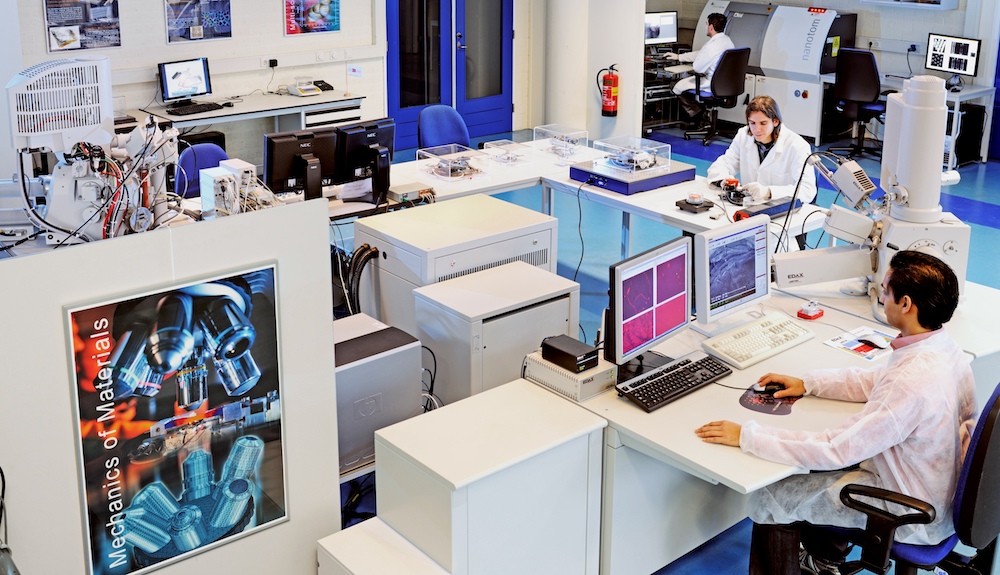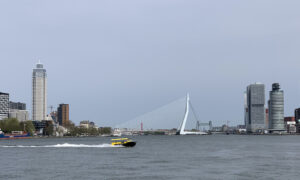It’s been almost two-and-a-half years since I moved to the Netherlands to study. I have always been interested in seeing different cultures, new places, in learning new languages and meeting new people with absolutely unfamiliar traditions.
This has made me passionate about traveling because growing up in Estonia I rarely ever encountered other nationalities rather than my own. Before high school, I decided that I wanted to see the world, study in English and get myself properly culture-shocked.
That’s when I knew that even though I love my country with my entire heart, my future lies in another country. So here I am in the Netherlands.
These are my top 8 things I wish I’d known before I moved to the Netherlands:
There is a reason why the Dutch language has so many words for “rain”
Thanks to its location in northern Europe, the Netherlands is a constant target for rain of all sorts, including drizzle, mist, sprinkles or – as Dutch people would say – regen, motregen, buien, plensen, hozen, stortbuien, stormen and many more. For every Dutch person, it’s a must to have a precipitation application showing the rain curve for every hour of the day.
Meaning if you want to get to the bus stop relatively dry and the rain starts at 16:30, better leave home at 16:08 and grab the umbrella as well, because, as we already established, no one can predict Dutch weather.
Riding a bicycle is one thing, but not getting into accidents is a skill
It is probably not a surprise to anyone that in the Netherlands people use bicycles as the main mean of transportation. All 18 million Dutch people own collectively 22.5 million bicycles, meaning there are 1.3 bicycles per person. That’s more bicycles than people!
So, you can imagine how busy the streets are – walking in Amsterdam could almost be considered an extreme sport. I have lived 2.5 years in the Netherlands, with six traffic accidents in only my first year.
After that I stopped counting.
Take it easy
One of the most important facts that changed me a lot while living in the Netherlands is the Dutch mentality. At first I had hard time getting accustomed to it. I would even get frustrated because of it. But as soon as you embrace it – you’ll never want to go back.
So what is so special about it? It’s the whole way Dutch people are – they are very laid back, they don’t take themselves too seriously and don’t stress out too much. What’s frustrating about it? Well, sometimes because of the easy lifestyle, deadlines are not met, replies take a long, long time, and the organization might feel lacking, especially for someone who is used to the perfect performance.
However, this mentality is what keeps you happy here.
Never stressing out about small issues keeps the mind concentrated on what really matters. You will see that everywhere in the Netherlands – you will be talking to the big bosses like they are your friends, university lecturers will act as if they are your best friends, and the replies for any applications will take so long that you will wish you could just do it yourself.
A fun fact is, nobody is surprised in the Netherlands when you are late because your train was late – happens every day. Locals also like to say that they are always on time because they are Dutch and then be late 80 percent of the time – but you can always blame it on the weather or the trains here.
That’s just how it works.
Dutch people are insanely extroverted
Coming from Estonia, a country where talking to strangers on the street is almost illegal, I had a real cultural shock once I moved to the Netherlands. I was coming out of the bicycle parking lot, walking aside my bike when passing a lady on the street, she told me “Hi” and smiled.
Of course, my first reaction was to hide my face and try to understand what I did wrong. But seriously, coming from a country where cashiers don’t even greet customers, it was a shock to get to know employees of the university on a level where they tell you about their hobbies, vacations and kids.
And if a Dutch person doesn’t have anything to talk about, they’ll complain about the weather.

There are three types of higher education systems in the Netherlands
MBO (middelbaar beroepsonderwijs) which stands for “middle-level applied education.” This is the lowest level of higher education and can be accessed by any student with any given educational background. Essentially MBO is vocational-training oriented. Hence, this career and technical education prepares pupils for more practical jobs such as a trade or a craft.
HBO (Hoger beroepsonderwijs) literally translating “higher professional education.” It is the second level of education and therefore is oriented towards higher learning and professional training. There are more than 60 different Hogescholen – applied sciences universities – in the Netherlands. The programs typically last for four years.
WO (wetenschappelijk onderwijs) or “scientific education” in English. WO is taught at research universities and is oriented towards higher learning in the arts or sciences. After the bachelor’s programme (typically 3 years), students can enroll in a master’s programme (typically 1, 2 or 3 years) or enter the job market.
Food, food, food

When I was moving from Estonia to the Netherlands, one thing I was not worried about was food … how wrong I was.
First of all, bread and cheese are Dutch go-to meals, commonly accompanied by a glass of milk. The weirdest part about it was going to the Saturday market early in the morning to choose all of the vegetables before the locals get out of the bakery queue.
Second, boterham met hagelslag or sandwich with chocolate sprinkles. Yes, it looks exactly as you imagine it to be … a weird concept for me but a regular breakfast or a snack for a Dutch person.
Third, if you can imagine it, Dutch people can deep fry it!
Take any Dutch city and you will find 50, if not more, French fry places. Moreover, fries are so loved here they eat more than 41 million kilos of them per year!
What makes the fries so popular? The toppings. It’s not just ketchup – Dutch people get creative here. The most basic sauces include:
• fries with peanut sauce (friet met satésaus)
• fries with mayonnaise, (curry) ketchup and onions (friet special),
• Patatje Joppie: fries with the “top-secret” sauce which is actually just a mixture of mayonnaise, ketchup and spices
• and let’s not forget about the most common and most loved ones – mayonnaise and spicy mayo.
But Dutch people don’t just stop at fries. It is impossible to walk down the street in the centre of any city and not stumble upon a “snack wall” (snackmuur). There, for only one euro, you can find bitterballen, kroketten, frikandellen and kaassoufflé – Dutch snacks that everyone knows but no one can explain to the foreigners.
Electro parties
In the Netherlands, partying begins on Thursdays and ends on Sunday night. The biggest and coolest parties are the electro parties or festivals. For some of us, it’s uncommon to even listen to that kind of music, but Dutch people love electro.
Starting from illegal underground parties that usually take place in old cinemas or under bridges, these parties give you the rebel feeling of excitement. We Are Electric is just one of the enormously successful festivals in the Netherlands, and one must not forget Tomorrowland that takes place in Belgium but is one of the favourite festivals amongst Dutch people.
The best part about those festivals is not even the way you party until 5 in the morning and wake up in the tent with your friends as soon as the neighbours start playing the music on their own speakers – although that is definitely quite a vibe. It’s about the atmosphere – at electro parties everyone is just friendlier. It’s a fact and everyone knows it. It is very uncommon to see fights at those parties.
From a mild electropop to hardcore techno, everyone can find something for themselves. After all, the most famous DJs – Armin van Buuren Tiësto, Martin Garrix, Hardwell and Afrojack – all come from the Netherlands.
Early evenings
Most of the cafes, offices and even shops are open until 5.30 p.m. or 6 p.m. It might sound weird, but I was shocked at first and did not get fully used to that until today.
The thing is, all my life I have been able to get groceries 24/7 in my country and all of the offices are always open until 9 p.m. So I was having a hard time getting accustomed to the Dutch mentality. Here, if the office closes at 5 p.m., you will not see a single soul in the office at 5:01.
Maybe it is because Dutch people value their private time. Maybe it is because here people have dinner at 6 p.m.
Sharp!
See more about expat life in the Netherlands here.

About the author:
Anna Bubnova currently lives in the Netherlands where she studies international business. She’s in her third year, doing her internship at Fontys Consultancy at High Tech Campus.
Anna is passionate about meeting new people every day with genius ideas and collaborating with them to solve their business issues. She believes that everyone is responsible for their future, moving to the Netherlands to seize on new opportunities.
Anna is from Estonia and speaks Russian, Estonian and English fluently as well as some Finnish.














